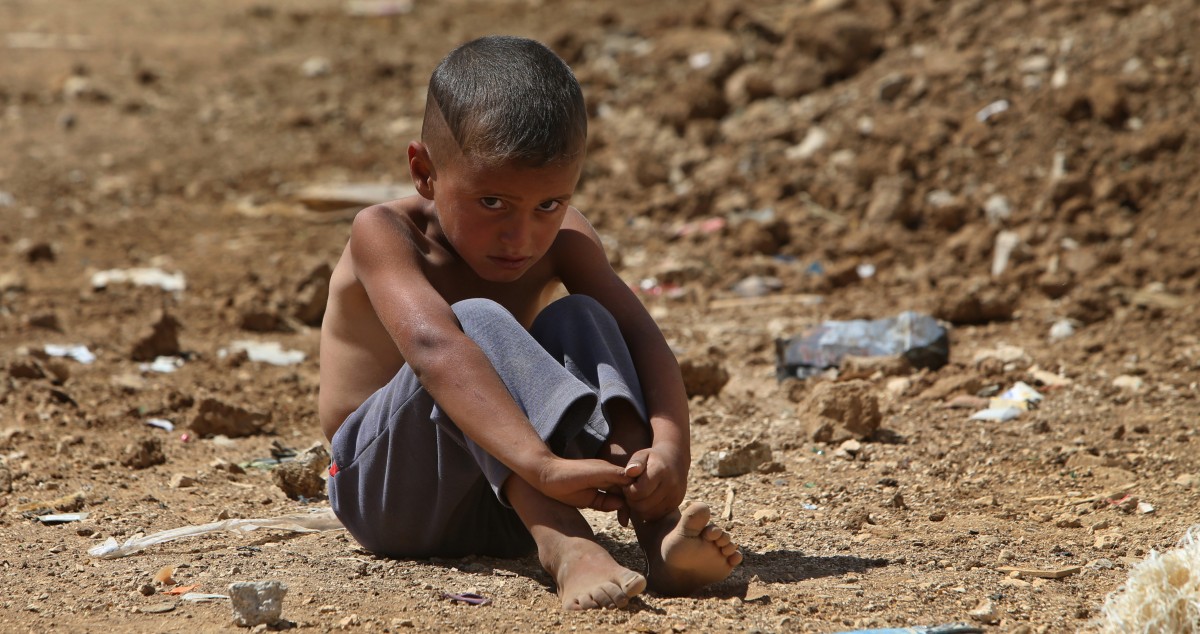The UN High Commissioner for Refugees (UNHCR) in Lebanon has suspended food rations and aid for 8,000 Syrian families, local activists said yesterday according to Syrian news agency Zaman Al-Wasl.
News agencies on the ground confirmed with officials that October would be the last month thousands of Syrians would be eligible to receive assistance from the World Food Programme, despite its low cost at less than $27 per person per month.
UNHCR stated that its mandate extended only to the most vulnerable families that were unable to afford their basic needs of food, shelter and healthcare. Yet as winter approaches, a lack of funds has forced the agency to cut aid to some families as they prioritise the most vulnerable.
Displaced Syrian families receive 260,000 Lebanese pounds ($173.5) per month, in addition to the subsidies provided by the World Food Programme. However, the latest cuts have prompted fears that such measures will extend to winter heating and fuel aids.
In its 2017 report, the High Commission classified Syrian refugees in Lebanon as the poorest compared to their counterparts in other countries; 68 per cent of Syrians in Lebanon live in extreme poverty, defined as less than $2.87 a day.
Last week, the UNHCR made an appeal for donations, stating that it needs $44 million of its previously announced $270 million total, to stop cash assistance activities ceasing in November. Overall, the agency supports more than 5.6 million Syrian refugees registered across Turkey Lebanon, Jordan, Iraq and Egypt, 2.6 million of whom are children.
However, refugees in Lebanon are facing increasing pressure to return to Syria, despite the bloody war still ongoing in many parts of the country. Last month Lebanese President Michel Aoun reiterated that the return of Syrian refugees should not be linked to the resolution of the conflict, and he called on Switzerland to support Lebanon in taking steps to help refugees return.
Over the past few months, about 5,000 refugees have returned to Syria, most originate from the western Qalamoun region, after Lebanese security ensured the safe transfer of the refugees from Arsal to the Lebanese-Syrian border. Between last January and October, up to 10,000 refugees are estimated to have been returned to Syria from Lebanon by bus; it is unknown whether such a move was voluntary or forced.
In April, international NGO Human Rights Watch (HRW) condemned the Lebanese government’s expulsion of hundreds of Syrian refugees from their temporary homes in the country in a new report “Our Homes Are Not For Strangers”. The findings revealed that at least 13 municipalities in Lebanon have forcibly evicted at least 3,664 Syrian refugees, either on the basis of their nationality or religion.
According to refugees in Lebanon, the UN is also believed to have offered some Syrians, especially those originating from Homs, money to return to their city, but many have refused due to fear of arrest and torture by the Syrian regime upon their return.
Top Photo | A Syrian refugee boy sits on the ground at a temporary refugee camp, in the eastern Lebanese Town of Al-Faour, Bekaa valley near the border with Syria, Lebanon, Wednesday, Sept. 11, 2013. (AP Photo/Hussein Malla)
![]() MEMO is licensed under a Creative Commons Attribution-NonCommercial-ShareAlike 3.0 International License.
MEMO is licensed under a Creative Commons Attribution-NonCommercial-ShareAlike 3.0 International License.


